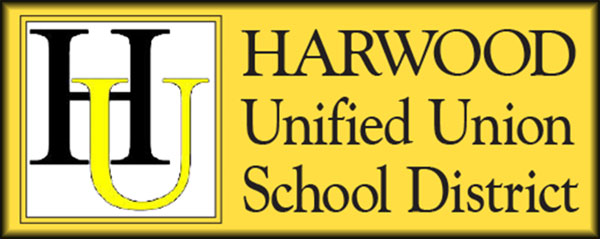Education taxes in the school district are expected to rise with an increase in the Harwood Unified Union School District (HUUSD) budget for fiscal year 2021. However, at the last school board meeting on December 18, the board voted to limit this increase to 2.2 percent. The board also voted to put all surplus money from fiscal year 2020 into the maintenance reserve fund.
The original tax rate increase was supposed to be 4.4 percent. “That’s a tough tax increase to swallow,” said board member Christine Sullivan, Waitsfield, after HUUSD finance director Michelle Baker presented a $40 million budget estimate to the board. The current budget is $38,600,862.
Baker cited many reasons for increasing costs in the district this year, including increasing needs at Crossett Brook due to rising enrollment, staff additions across campuses including full-time nurses at both Fayston and Moretown, a “hearing” project that involves outfitting classrooms with voice-augmenting technology, maintenance projects that may or may not be covered by the bond, as well as rising salaries, employee benefits and health insurance.
RISING COSTS
While rising costs come from all over the place, those looking for the largest contributor to this tax increase should move their mental microscopes to the health insurance section of the budget. To put it in perspective: Salaries are increasing 3.1 percent and employee benefits are up 4.5 percent, but health insurance is up 12.7 percent. This health insurance increase is the result of a statewide health insurance premium plan that makes school year support staff eligible for all tiers of health coverage, which they weren’t before.
The statewide health insurance premium increase goes into effect July 1, 2021. It will affect school districts across Vermont, not just the HUUSD. But how does the proposed tax increase from the HUUSD budget fare against statewide tax projections? Baker explained the comparison in numbers: “The average homestead property tax rate in the state is $1.51. That compares to our rate of $1.63. The state projection on the equalized tax rate was $1.56, which is a 3.63 percent increase, compared to our 4.4 percent increase,” Baker told the board.
“So we’re high,” summarized board vice chair Torrey Smith, Duxbury.
In a money-saving mindset, the board considered reducing Baker’s proposed tax rate increase and even made a motion to maintain last year’s tax rate which, if passed, would save about $1.3 million. That motion failed when eight of the 12 board members present voted against it, given the detrimental impact it could have on school staff and programming.
“The budget is largely people. In order to come up with that sort of offset, you would be looking at 20 to 25 staff reductions,” said Superintendent Brigid Nease. Nease also mentioned programs that could suffer from a budget cut, such as the wellness program at Harwood.
Many board members echoed Nease’s concern about the consequences of maintaining the tax rate from last year. “We are seeing a significant increase in health care costs. But the cuts proposed here seem too dire,” said board member Jonathan Clough, Warren.
“A lot of people say that this money is insignificant. Just pennies on the tax dollar. But pennies on the tax dollar mean teachers,” said board member Alexandra Thomsen, Waterbury.
Meanwhile, board member Theresa Membrino, Fayston, questioned if the board should reduce the tax rate at all. “Last year we wanted to save 3 cents and the administration came back with getting rid of world languages. Is this just a futile exercise?” asked Membrino.
MIDDLE GROUND
Eventually the board decided to take the middle ground, voting to direct the administration to prepare a budget with a higher tax rate than last year, but one that limits this increase to 2.2 percent. At the next meeting on January 15, the administration will give its recommendations for cuts to the current plan.
What is known now is that many of those millions of dollars will go to maintenance, seeing as all campuses in the district are in need of repairs. Crossett Brook needs a new roof. Harwood needs new roof segments, lights and boiler repairs. Moretown needs a new parking lot and paint repair. Thatcher Brook, Waitsfield and Warren elementary schools all need new carpeting and flooring.
Baker recommended that the board put its surplus from last year into the maintenance reserve fund. “Currently, we have $1,342,321 in our maintenance reserve fund. If we were to do all of the maintenance work in FY21, we would spend $1,654,182. That would deplete the maintenance reserve fund and put it in a deficit. As you know, we have about $1.8 million in surplus to consider contributing to the maintenance reserve and offsetting the budget. My recommendation would be to use the surplus in the maintenance reserve given these projects, even though some of them may be funded by the bond,” said Baker.
Here the board agreed with Baker and made a motion to put all the surplus from fiscal year 2020 into the maintenance reserve fund. Although the board voted to cap the tax rate increase at 2.2 percent, the vote to replenish the maintenance reserve fund shows that when it comes to completing maintenance projects, the school board won’t procrastinate.







